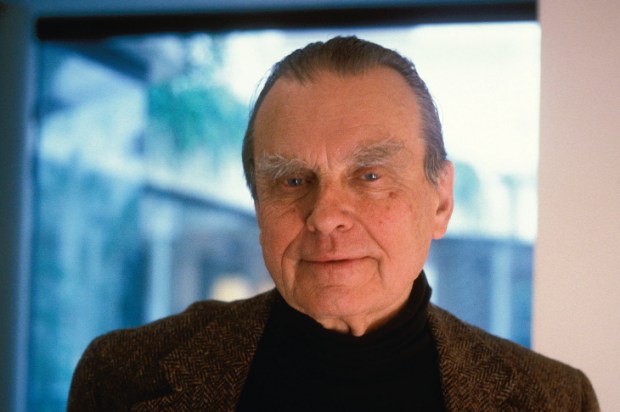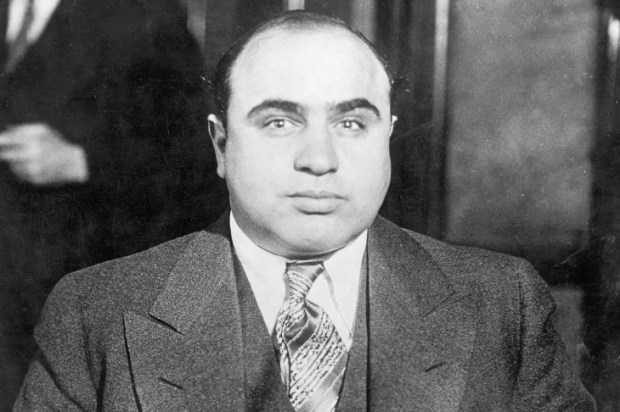Patty Yumi Cottrell’s blackly comic and sophisticated debut Sorry to Disturb the Peace (And Other Stories, £10) opens with Helen Moran learning that her brother —adopted, as she was — has committed suicide. Helen lives in New York, working with troubled teenagers who have dubbed her ‘Sister Reliability’. Against familial expectations she returns to Milwaukee to her adoptive parents’ home for the funeral. But Helen has not arrived simply to grieve:
Perhaps to investigate his death would revitalise my own life, and if I could communicate my eventual findings to them, it would strengthen and support the lives of my adoptive parents as well.
Despite her nickname and these somewhat inflated intentions, Helen proves to be anything but reliable, particularly in her perception of her place in the world. The charm of Cottrell’s book lies in the delightful, prickly dissonance between Helen’s voice, stuffed with outlandish utterances (such as boasting of her ‘very observational acumen combined with a genius for ethical practices’), and her actions. She is clearly deeply unhappy to return to Milwaukee but determined to suppress all negative feelings.
What follows is three days of Helen struggling to carry out her investigation. A repeated refrain, ‘I said to no one’, serves to highlight her isolation. Cottrell writes entertainingly — Helen notices her father’s eyes are ‘small and sad and brave, like those of an endangered bird flying through a forest at dusk’ — but the memorable impact of Sorry to Disturb the Peace, concealed beneath Helen’s self-delusion, comes from what lurks unsaid.
Eli Goldstone’s Strange Heart Beating (Granta Books, £12.99) also opens with a death: Seb’s wife, Leda, has been killed by a swan in a boating accident, though Seb finds it ‘almost too embarrassing to mention the absurd nature of her death’ — or perhaps Goldstone does. ‘There’s no right way to grieve,’ Seb remarks, but he barely seems to grieve at all. He remains incomprehensible to the reader, just as Leda was a mystery to him.
There are strands of narrative ripe to be explored: Seb travels to Latvia to meet Leda’s cousin, with whom he goes drinking and hunting, and he enjoys an awkward liaison with a German woman. His story is also interspersed with diary entries from Leda’s youth, which make it clear she harboured a secret, plausibly to do with abuse and her cousin. Unfortunately, Goldstone leaves all undeveloped, just as the myth of Leda and the swan remains unhatched. Pretty sentences abound, but add up to very little; Goldstone notes that ‘swans are beautiful and it’s easy to assign meaning to a beautiful thing’. It’s hard not to think of Strange Heart Beating in the same way.
A similar risk, that of clutching at importance, threatens Simon Edge’s The Hopkins Conundrum (Lightning Books, £8.99), in which he combines the Jesuit poet Gerard Manley Hopkins, the wreck of the steamship SS Deutschland and, in the present day, a struggling publican in north Wales. However, Edge keeps things enjoyably straightforward and the result is a pleasurable literary thriller. Tim Cleverly, divorced and hard up, hits on an absurd scheme to attract trade to his failing pub: he will convince the world that Hopkins’s poem ‘The Wreck of the Deutschland’, composed while Hopkins lived near the village, is filled with coded grail references. Tim contacts Barry Brook, author of the bestselling The Poussin Conundrum, to enlist him to write a novelisation of his half-cooked scheme in the hope of luring tourists to the area. All is on track until Tim falls for Chloe, a Hopkins aficionado who loathes Brook and his cheapening of literature.
This is thoroughly enjoyable hokum. Edge wears his Hopkins learning lightly, sprinkling the book with snippets while avoiding didacticism or handholding. There are some caricatures — the nuns on the Deutschland, for one — but that’s forgivable as the plot races on. The Hopkins Conundrum probably won’t win any prizes for literary merit, but it’s a merry page-turner nonetheless.
Rachel Khong’s Goodbye, Vitamin (Scribner, £12.99) is the best of these debuts, conversational and light in tone, but heartbreakingly clear-eyed as well. Ruth opts to spend a year living at home after her mother asks her to ‘keep an eye on things. By things she means Dad, whose mind is not what it used to be.’ Her father is a college history professor forced into retirement after he develops Alzheimer’s. The end of a long engagement dogs Ruth, but the daily challenge of living with someone suffering from Alzheimer’s — battles to convince him to eat, displays of pique and remorse — lends her some perspective; it is her observations that energise the novel.
Khong presents Goodbye, Vitamin in diary form, which she packs with wry anecdote: Ruth tries to cook for her parents, flubs the recipe and notes: ‘What I will remember, I realise, is this failure.’ Indulging too much, she observes,‘sometimes I like a hangover because it’s something to do’. Later, attending a doctor’s appointment, she asks how she can be a better carer and is told to be present:
‘Like in the moment?’
‘I meant “around”, he says. ‘But sure, that, too.’
The potency of Goodbye, Vitamin stems from Ruth’s measured, self-deprecating tone and her itemisation of the details of a life effectively on hold. There’s a potential love interest, but Khong doesn’t rush to a happily ever after. Instead, she has Ruth note at one point: ‘Everybody everywhere, I think, is always talking about the same shitty thing.’ Khong manages to imbue seemingly mundane topics with charm and pathos through her attentive, humorous and personable writing.
Got something to add? Join the discussion and comment below.
Get 10 issues for just $10
Subscribe to The Spectator Australia today for the next 10 magazine issues, plus full online access, for just $10.
You might disagree with half of it, but you’ll enjoy reading all of it. Try your first month for free, then just $2 a week for the remainder of your first year.














Comments
Don't miss out
Join the conversation with other Spectator Australia readers. Subscribe to leave a comment.
SUBSCRIBEAlready a subscriber? Log in